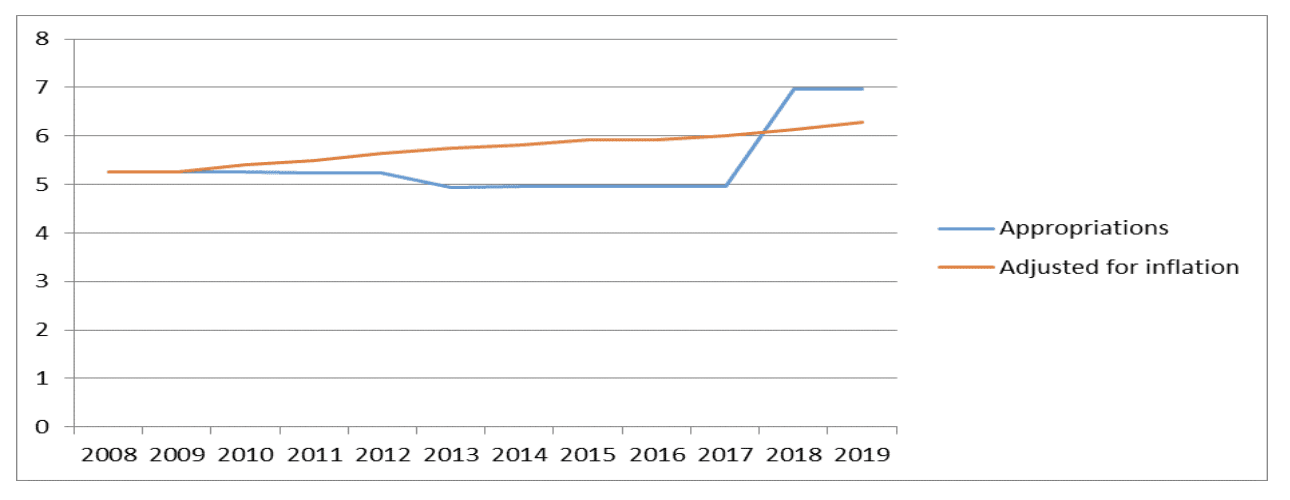Background/Funding History
In 2002, Congress passed the Help America Vote Act (HAVA). One purpose of HAVA is to make voting systems across the country more accessible to people with disabilities. The law acknowledges the unique obstacles people with disabilities face at the polls, and authorizes funding for the Protection and Advocacy for Voting Access (PAVA) program. PAVA is administered by the United States Department of Health and Human Services, Administration on Intellectual and Developmental Disabilities in the Administration on Community Living.
A 2017 Government Accountability Office (GAO) report found that 83 percent of polling places surveyed on Election Day 2016 had impediments that hindered physical access or limited the opportunities for private and independent voting for people with disabilities. While the architectural access of polling places has improved since the 2000 and 2008 GAO election reports on polling place accessibility, the accessibility of the actual voting stations has become worse, showing much work remains to be done to fully achieve private and independent voting for people with disabilities. Other barriers include a lack of voting and registration materials in accessible formats for people with sensory disabilities, and outright denial of the right to register and vote based on false assumptions about a person’s legal capacity to vote.
Since Fiscal Year (FY) 2008 PAVA was funded at $5.3 million and was either level funded or cut until FY 2018, with only a slight increase in FY 2014. In FY 2018, PAVA received a $2 million increase to $6.9 million. However, because PAVA advocates found continued problems with accessibility in the 2016 election, including untrained or inadequately trained poll workers, inaccessible polling places, and long lines, along with the 2020 Presidential primary season starting, it is important FY 2020 funding be increased so the PAVA program can advocate for greater accessibility and reduce barriers to people with disabilities voting in the 2019 elections and beyond.
NDRN recommends a funding level of $9.0 million for Fiscal Year 2020
Current Program Responsibilities
HAVA charges the Protection & Advocacy System with helping to ensure the full participation of individuals with disabilities in the entire electoral process, including registering to vote, casting a ballot, and accessing polling places. PAVA advocates are on the ground in communities and states, providing advice, technical assistance, and training to election officials about voting accessibility for a wide array of disabilities. They also provide outreach, training, and direct representation to individuals with disabilities, and the agencies and organizations that serve them.
Since the U.S. Election Assistance Commission’s standards for voting machines went into effect in December 2007, PAVA advocates have also been tasked with helping states and communities understand and comply with the new accessibility provisions.
The passage of HAVA was a milestone for the disability community. For the first time, federal legislation guaranteed voters with disabilities the right to a private and independent vote. This achievement, however, is a reminder that the intent of past legislation to secure voting rights for voters with disabilities, such as the Voting Rights Act of 1965 and the Americans with Disabilities Act remains, in many ways, unfulfilled. The United States has always championed free and fair elections and the right of each individual to cast a private and independent ballot. The PAVA program must be adequately funded to ensure that Americans with disabilities – who have faced a multitude of barriers when exercising their right to vote – can fully participate in our democratic process.
For more information, contact Eric Buehlmann at 202-408-9514 or [email protected].

